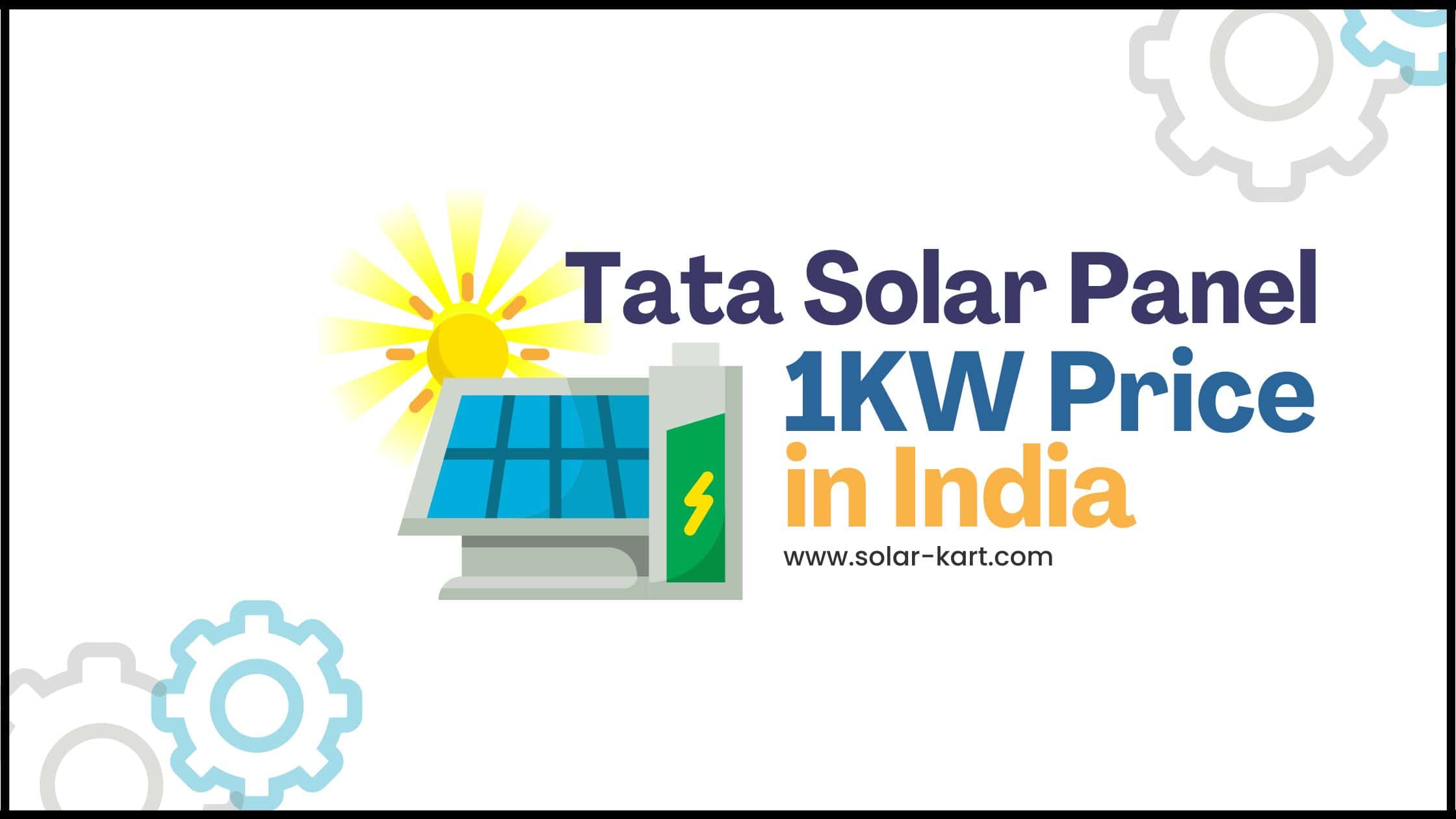Solar energy is becoming increasingly popular in India, thanks to its sustainability and cost-effectiveness. One of the leading names in the solar industry is Tata Solar, known for its high-quality and reliable solar panels.
In this article, we will describe about the Tata solar panel 1kw price in India, the necessary equipment, benefits, disadvantages, and available subsidies.
Tata Solar Panel 1KW Price in India:
Tata 1kW Solar Panel System: Price and Equipment
The price of a 1kW Tata Solar panel system in India typically ranges from ₹50,000 to ₹70,000. This cost includes all necessary components and installation. Here’s a detailed breakdown of the components required for a 1kW solar panel system:
Equipment List
- Solar Panels:
- Price: ₹30,000 – ₹40,000
- Description: High-efficiency photovoltaic (PV) panels that convert sunlight into electricity.
- Inverter:
- Price: ₹10,000 – ₹15,000
- Description: Converts the DC power generated by the solar panels into AC power usable by household appliances.
- Mounting Structure:
- Price: ₹3,000 – ₹5,000
- Description: Durable and weather-resistant structures to mount the solar panels securely on rooftops.
- Wiring and Electrical Accessories:
- Price: ₹2,000 – ₹3,000
- Description: Includes cables, connectors, and other essential electrical components.
- Installation:
- Price: ₹5,000 – ₹7,000
- Description: Professional installation service to ensure the system is set up correctly and safely.
Total Estimated Cost
- Without Subsidy: ₹50,000 – ₹70,000
- With Subsidy: Subsidies can reduce the the overall cost of the solar panel. The government offers up to 40% subsidy on solar systems. Hence, the final cost with a 40% subsidy could be around ₹30,000 – ₹42,000.
Benefits of a 1kW Tata Solar Panel System
Investing in a 1kW solar panel system offers numerous benefits:
Energy Independence
A 1kW solar panel system can generate approximately 4-5 units of electricity per day, depending on the location and sunlight availability. This power can easily handle essential equipment’s like:
- Lighting: 8-10 LED bulbs (5W each)
- Fans: 3-4 ceiling fans
- TV: 1 LED TV (up to 100W)
- Mobile/Laptop Charging: Multiple devices
Cost Savings
If you want to switch your electricity to solar energy, awesome! Over time, the savings on your electricity bill can cover the initial investment, leading to long-term financial benefits.
Environmental Impact
Solar power is a clean and renewable energy source. By installing a 1kW solar panel system, you contribute to reducing carbon emissions and promoting environmental sustainability.
Low Maintenance
Solar panels require minimal maintenance. Regular cleaning and occasional inspections are enough to keep the system running efficiently.
Disadvantages of a 1kW Solar Panel System
Ok, we already about a lots of benefits. Now there are only a few disadvantages to tell:
Initial Investment
The initial cost of a solar panel system can be high. But Gov. subsidy can help to reduce the overall cost. It’s a one-time investment that saves money over time.
Space Requirement
A 1kW solar panel system requires adequate rooftop space for installation. Ensuring your roof can support the panels is crucial.
Weather Dependent
The efficiency of solar panels depends on sunlight availability. On cloudy days or in areas with less sunlight, energy production may drop.
Government Subsidies and Financial Incentives
The Indian government offers several subsidies and incentives to promote solar energy adoption. The primary subsidy scheme is through the Ministry of New and Renewable Energy (MNRE), which offers up to a 40% subsidy for residential solar systems.
Calculating the Subsidy
- Base Cost: ₹60,000 (average price of a 1kW system)
- Subsidy (40%): ₹24,000
- Final Cost with Subsidy: ₹36,000
Besides central government subsidies, some states offer extra incentives to further reduce the cost.
Conclusion
A Tata 1kW solar panel system is a valuable investment for households looking to reduce their electricity bills and environmental impact. With the support of government subsidies, the initial cost becomes more affordable, making solar energy accessible to a broader audience. Though the initial cost and space requirements can be high, the long-term benefits of energy independence, cost savings, and environmental protection make it worthwhile.
By understanding the components, costs, and benefits, you can make an informed decision about integrating solar energy into your home. Embrace the future of energy with Tata Solar and contribute to a greener planet.
Read also: 1 Kilo Watt Solar Panel Price: Comprehensive Guide

1 thought on “Tata Solar Panel 1KW Price in India: A Comprehensive Guide”